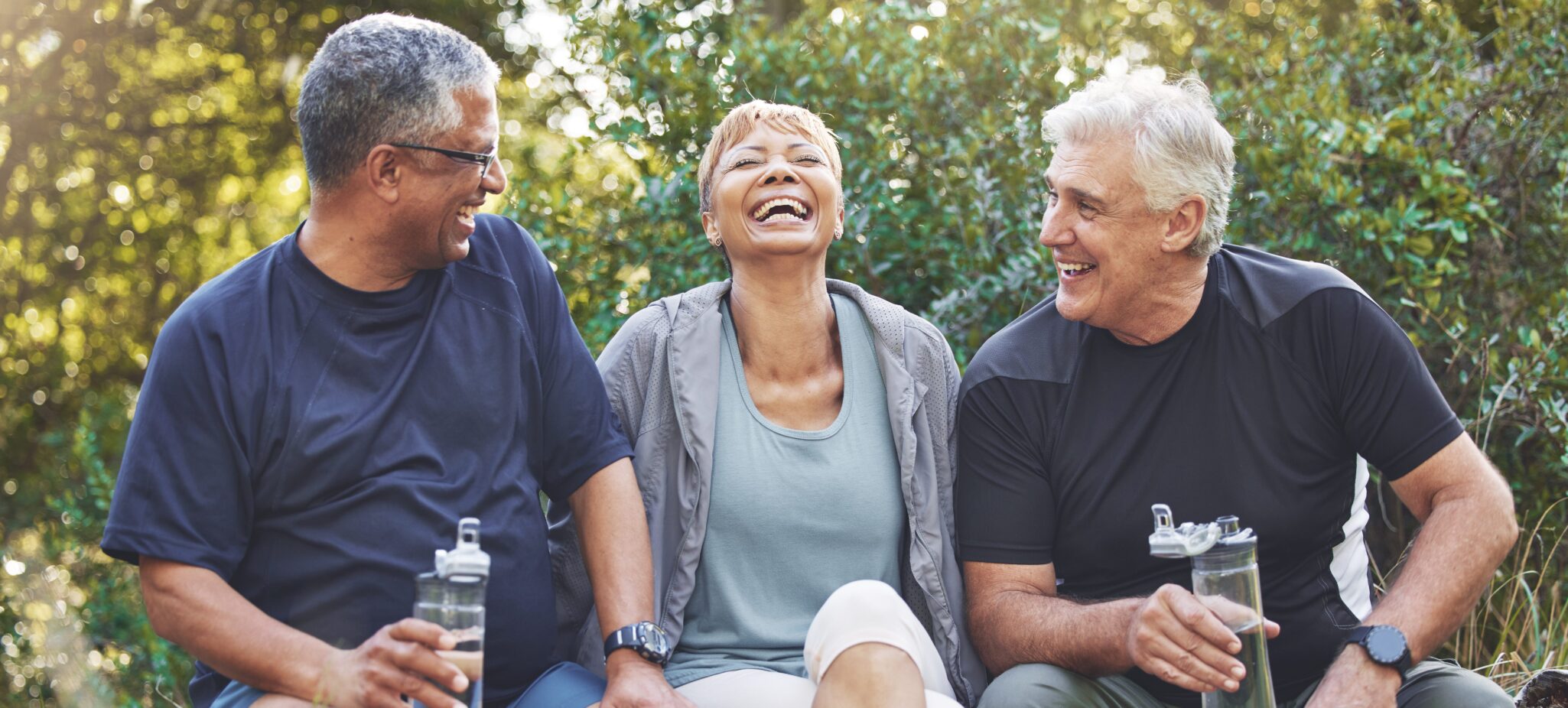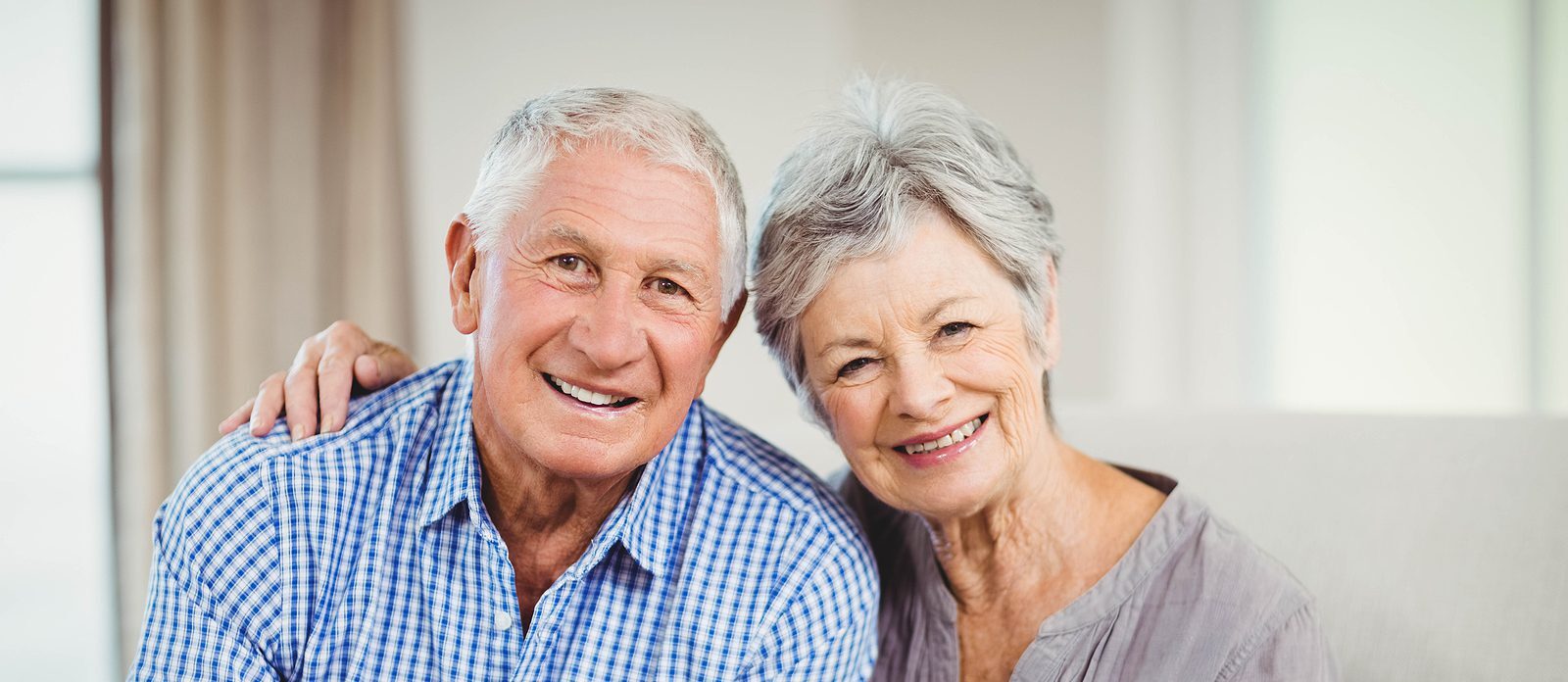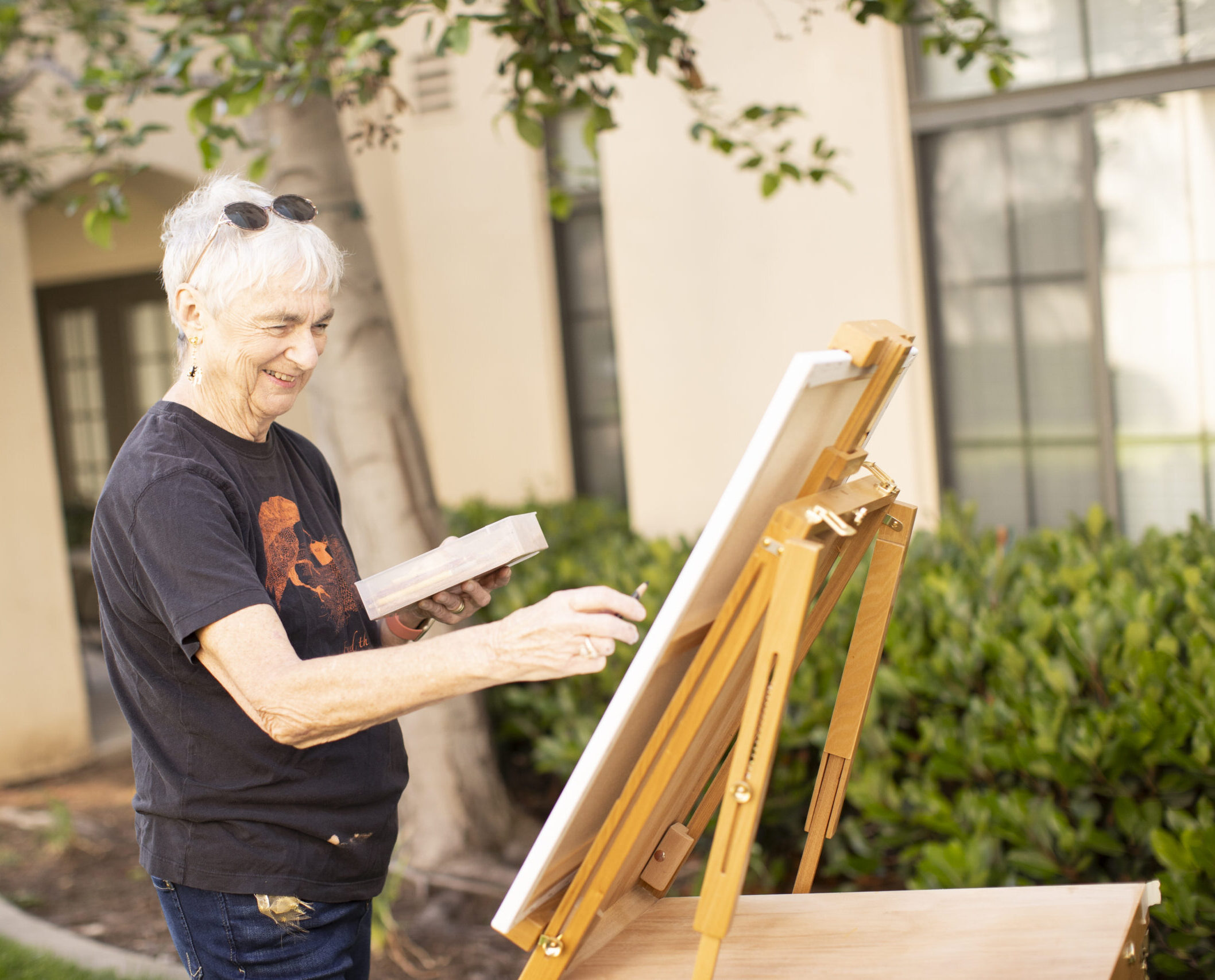What Is Healthy Aging?

While innovations in science and technology promise to prolong and improve human life in unseen ways, healthy aging still stays in our hands for the most part. Genetics and some environmental and behavioral factors are indeed out of our control, but we can do a number of things to promote our well-being and health as we age.
But what is healthy aging exactly? Pan American Health Organization (PAHO) defines healthy aging as a “…continuous process of optimizing opportunities to maintain and improve physical and mental health, independence, and quality of life throughout the life course.”
Put simply, healthy aging refers to embracing healthy habits and behaviors, both physical and mental, toward leading a productive and meaningful life as you age. These practices can include anything from exercising and managing health conditions to engaging in social activities. That is, healthy aging involves maintaining both your physical health and emotional health in balance.
So, while you may often hear that leading a healthy lifestyle is a matter of eating well and staying active, it’s much more than that. A healthy lifestyle that leads to healthy aging involves focusing on physical, social, emotional, and cognitive health equally. It means taking care of yourself in all these four areas to live a healthy, fulfilled, and happy life as you age.
Essentially, continuously building up on your well-being leads to healthy aging. This means finding a balance of good mental health, a sense of purpose, and a sound level of overall satisfaction with your life. Staying active, engaging in your community, and finding activities you enjoy can all contribute to maintaining your well-being.
This article will tell you more about how to work on all these aspects of your life as you head into your golden years. It will outline how to make healthy aging a part of your lifestyle according to your best possibilities.
Active Aging: Staying Active for a Healthier Life
Active aging has many benefits that play a part in your overall quality of life. Being physically active as a senior can help to maintain primary body functions, including:
- strength
- endurance
- balance
- mobility
Seniors who participate in active aging:
- are less likely to experience a fall
- have lower rates of heart disease and hypertension
- have better bone health
- are less stressed
- can better control weight gain
- are more likely to be social and choose group activities
- sleep better
- have better cognitive function
- are less likely to have severe functional impairments in the future
But active aging is about being physically active as well as participating in social, civic, spiritual, cultural, and economic activities within your community. All this stimulates your mental and physical health in ways that have proven to extend your longevity and well-being.
Social activity helps to keep your mind sharp and agile. It also spices up your daily routine, especially in the golden years when things slow down a little.
Volunteering for a beloved cause, joining a new club, or taking a stroll with a friend can all be wonderful components of active aging. These activities can give you a sense of purpose and satisfy your mind, body, and soul. But we’ll talk in more detail about the best activities for senior health below.
The Impact of Stress on Senior Health
Excess stress can be detrimental to everyone’s health, especially seniors. In fact, it can even speed up the aging process and cause a range of health problems, including:
- Headaches
- Sleep problems or insomnia
- Increased risk of heart disease, diabetes, and high blood pressure
- Chest and stomach pain
- Mental and physical fatigue
- Inability to concentrate
- Muscle pain and tension
- Indigestion and heartburn
- Changes in appetite
Some studies show that stress in seniors links to inflammation in the body. If you’re in a constant state of stress, your body may respond with higher levels of inflammation. In turn, this can cause many ailments, like arthritis, atherosclerosis, and even cancer.
Stress can weaken your immune system, making you more susceptible to pesky illnesses like the common cold or flu. It may also lower the effectiveness of vaccines that aim to prevent certain illnesses.
Besides causing physical symptoms, stress isn’t good for your mental health. That’s why managing your stress through active aging is essential for maintaining overall good health as a senior. Below, we’ll recommend some activities you can engage in daily to relieve stress you may experience over the years.
Importance of Sleep for Healthy Aging
Sleep is like your body’s reset button at the end of the day. When one of your gadgets is on the fritz, you might try turning it off and then on again to see if that fixes the problem. Your body uses sleep in the same way: to restore and heal.
Sleep is vital as you age, as it plays an important part in your brain’s cognitive function. Getting too much or too little sleep can be associated with many health risks in senior years. Chronic lack of sleep can lead to higher chances of developing dementia, Alzheimer’s disease, or depression.
With this in mind, you should aim for between seven to nine hours of sleep each night. Some seniors find it difficult to fall asleep or stay asleep during the night, so don’t be afraid to schedule a nap in your daily routine. It can recharge your batteries, giving you the energy you need to be active for the rest of the day. You’ll notice that a nap can also help improve your mood and boost your mental agility by clearing out your thoughts.
Physical Activity and Its Positive Effects on Senior Health
As you get older, it’s normal to slow down a bit. But it’s also essential to remain active and get into some light or moderate exercise. Regular physical activity can reduce the chances of developing conditions like heart disease and diabetes, as well as other chronic illnesses. It can assist you in retaining balance, muscle mass, and agility, which can all help you stay in good shape and reduce the chances of injuries or falling.
Some of the best activities for seniors are low-impact ones that are easy on the joints but can still get the heart rate up. These can include but are not limited to the following:
- Water aerobics is quite popular since it helps to improve strength, flexibility, and balance while not being strenuous on your body.
- Pilates, walking, or yoga are all senior-friendly and can get you moving through low-impact exercises.
- Dancing, like Zumba or tango, is fun and gets you into exercising. This cardio works for different muscle groups and helps with coordination and balance. It also involves that much-important social aspect.
- Biking (both indoors and outdoors) works different muscles and is a great cardio workout without being too intense. If you like nature, get on your bike and go! Otherwise, a stationary bike works just as well.
- Tai Chi has both physical and mental benefits as it incorporates gentle movements that promote balance and stability while enhancing immunity and cognition.
- Seniors who want more strenuous activity can get into 75 minutes a week of hiking, jogging, or running.
Centers for Disease Control and Prevention (CDC) recommends 150 minutes a week of these activities for seniors. You can do them alone or buddy up and work on the social aspect, too — the choice is all yours.
Consider joining a class at your local gym or sports center if you want to try something new to get fit and enjoy yourself.
Depression and Anxiety in Seniors
Depression and anxiety in seniors are actually more common than you might think. More than 6 million people over 65 in the US have depression, but only about 10% seek out treatment for it.
Unfortunately, this disorder can sometimes go unnoticed by friends or family since the symptoms present differently than in younger people and can be mistaken for other conditions. Yet, depression in seniors increases risks for serious cardiac diseases while lowering the body’s ability to recover from illnesses.
Anxiety, like depression, often goes undiagnosed. It affects between 10 and 20% of all people but is more common than depression among seniors. There isn’t always a specific cause, but life changes people face as they age can often trigger anxiety. These involve health problems, financial issues, or loss of independence.
Both of these conditions can impact your mental and physical health. Seniors with anxiety and depression often tend to isolate themselves. That’s why keeping connected with friends, family, and loved ones is so important. One of the best benefits of communal living, like a retirement community, is that you’re surrounded by smiling faces and caring people. This can help combat anxiety and depression and make it easier for those living alone to access a support system.
The Health Benefits of Yoga for Seniors
If you’re looking for a way to improve your mental and physical health, yoga for seniors is just the thing. While you may think of it as a New Age practice with crazy poses and contortions, yoga is easy to adjust to all mobility and fitness levels. Some classes are specifically aimed at seniors so that you can reap the benefits of yoga while trying poses and exercises that are easy on your bones and joints.
There are several health benefits of yoga for seniors. Physically, yoga can help:
- Manage chronic pain
- Lower blood pressure
- Improve bone strength
- Enhance flexibility, balance, and overall strength
- Promote better sleep
When it comes to mental health, yoga is proven to relieve anxiety and stress. It’s practiced in a calm, soothing environment and includes breathing techniques that help you relax and improve the oxygen flow in your body. All this can lower your risk of depression.
Finally, yoga promotes mindfulness or being aware of your thoughts and emotions. Practicing mindfulness can help you stay connected to the world around you and remind you to live in the present.
As shown, yoga can help enhance your physical, emotional, and even social well-being, which are three key pillars of healthy aging.
The Health Benefits of a Pet for Seniors
Did you know that having a pet is good for your health? Research shows that seniors who have pets are more likely to have more opportunities to exercise and head outdoors.
Pets, especially dogs, require going out for walks and fresh air several times a day. Walking is an excellent, low-impact way to exercise and enjoy natural vitamin D from the sun. According to CDC, pet owners are also more likely to have lower blood pressure, cholesterol, and triglyceride levels.
Taking care of a pet is also good for your mind and soul. Furry friends are a source of joy and love. They can make you feel needed and help ward off feelings of loneliness.
Studies also show that having pets is a popular way to meet people with similar interests, like making new friends at your local dog park. So, if you’re looking to get more active and social, adopting a pet could be a perfect option.
Meditation for Brain Health in Seniors
Meditation is another practice that can help both your mental and physical health. For thousands of years, people have been relying on meditation to clear their minds and cope with negative feelings and stress.
As a senior, you can work meditation into your daily routine for just a few minutes to begin experiencing the benefits. Experts agree that seniors who meditate have lower levels of stress and a better mood. Meditation takes concentration, so those that meditate are often more focused and have better memory and attention spans. One study at UCLA even shows that meditation can help remove cognitive issues in seniors that can lead to Alzheimer’s.
Physically, meditation can help you relax to get more restful sleep at night. It can also be a tool against chronic pain. While meditation doesn’t relieve pain, it can help you cope with how you feel, promoting your overall well-being.
Studies also show that practicing meditation can boost your immune system, which can help you keep some common illnesses at bay.
The Importance of a Healthy Diet for Seniors
You’ve likely heard more than once that a good diet is essential to staying fit and healthy. As you age, you want to continue to eat well to give your body the nutrients it needs to maintain good overall health. You might find that your body doesn’t need as many calories as when you were younger, but you still need to eat a variety of foods to get essential nutrients.
Eating a balanced diet as a senior can help lower your risk of chronic illnesses like cancer and heart disease. Getting the right balance of nutrients may also help protect your body against conditions that can affect your bones and muscles.
To make sure that you get the nutrients your body needs, you should have a mix of these food groups in your daily diet:
- Lean proteins
- Fresh fruits and vegetables
- Whole grains
- Healthy fats
Some seniors find that their appetites or tastes change as they age. You may not like the same foods you used to or eat the same amount. But don’t be afraid to be adventurous with your eating. Trying new foods or cuisines might lead to you discovering something that you love. You’ll never know unless you try. Listen to your body’s natural cues, keeping in mind the importance of good nutrition for your overall health.
Engaging the Mind, Body, and Soul
Healthy aging is all about striking the perfect balance between mental, physical, and spiritual health. As mentioned above, your mind, body, and soul work together to maintain your body’s overall health.
Eating well, exercising, and meditating are all great examples of ways that you can connect all three of these components. Going beyond that, make sure you take the time to nourish your soul by joining in hobbies or other enjoyable activities. Try volunteering for an important cause or spending time with family and friends who bring you happiness. But even more importantly, do your best to keep out negative thoughts and people.
Focusing on the positive aspects of your life and practicing self-love and self-care can help keep your mind, body, and soul in harmony. While you surely want to relax in your later years, finding ways to keep your mind, body, and soul active can do wonders for your health.
Just take The Blue Zones as an example. The term refers to geographic areas in the world with higher numbers of people who live well into their 90s or past the age of 100 with low levels of chronic disease. Experts believe that a communal lifestyle in a retirement community and its many benefits help people lead long, healthy lives in The Blue Zones, some of which include:
- A healthy diet that’s heavy on fresh produce, whole grains, and fish
- Moderate daily exercise to keep active, like walking, gardening, or housework
- Getting a good amount of sleep, not too much or too little
- An active social life that includes family and/or friends
- A life purpose that motivates you each day
Discover Healthy Aging at SRG Senior Living
As discussed above, healthy aging for seniors doesn’t have to be about making huge adjustments to your current lifestyle. Small changes to your daily routine can do wonders in helping you get the most out of the golden phase of your life. Exercising, eating right, socializing, and finding your passions are all important components of active aging.
SRG Senior Living helps seniors partake in healthy aging every day. Our luxury senior living communities offer residents the chance to live independently and explore all aspects of healthy aging. For example, our residents can engage in community activities, receive holistic care if needed, and live a maintenance-free lifestyle while making time for what’s important to them. We have several living options that allow our residents to live in the comfort they want and deserve.
To learn more about SRG Senior Living and look at one of our communities, reach out and schedule a tour. Here, you’ll experience healthy aging with a touch of luxury.




